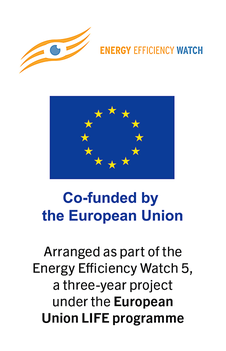Search eceee proceedings
Energy management in municipal solid waste treatment: a case study of a mechanical biological treatment facility
Panel: 4. Undertaking high impact actions: The role of technology and systems optimisation
This is a peer-reviewed paper.
Authors:
Hermano Bernardo, Institute for Systems Engineering and Computers at Coimbra, Portugal
Filipe Oliveira, Polytechnic Institute of Leiria and Institute for Systems Engineering and Computers at Coimbra, Portugal
Edgar Quintal, Institute for Systems Engineering and Computers at Coimbra, Portugal
Abstract
Over the last few years, mechanical biological treatment systems for municipal solid waste have been introduced in many European countries. In most cases, this was driven by the European Union Landfill Directive, which requires the diversion of biodegradable municipal waste from landfill to alternative processes. Although this type of treatment allows energy recovery from municipal solid waste, the process of mechanical biological treatment appears to be an intensive energy consumer, due to high demand of electricity consumed by process equipment.
This paper presents the main results of an energy audit performed to a Mechanical Biological Treatment facility in Portugal, which due to the amount of energy consumed must comply with the Portuguese Program called Intensive Energy Consumption Management System - SGCIE. The program was created in 2008 to promote energy efficiency and energy consumption monitoring in intensive energy facilities. Facilities operators are required to perform energy audits and take actions to draw up an action plan for energy efficiency, establishing targets for energy consumption reduction and greenhouse gases emissions indexes.
To implement actions that improve energy efficiency, it is necessary for the facilities operation to be associated with an effective energy management methodology, as well as an efficient facilities management procedure. The implementation of any energy management system should start with an energy audit, which was carried out to identify potential energy conservation measures for improving energy efficiency, and also typical energy consumption patterns and sector/equipment load profiles. This tool gives managers the information to support decision making on improving energy performance and reducing greenhouse gas emissions.
Results shown that there is a considerable potential for reducing energy consumption and greenhouse gases emissions on Mechanical Biological Treatment units.
Downloads
Download this presentation as pdf: 4-093-14_Bernardo_po.pdf
Download this paper as pdf: 4-093-14_Bernardo_PR.pdf
Panels of
1. Programmes to promote industrial energy efficiency
2. Sustainable production design and supply chain initiatives
3. Matching policies and drivers: Policies and directives to drive industrial efficiency
4. Undertaking high impact actions: The role of technology and systems optimisation
5. The role of energy management systems, education, outreach and training
6. Business models to improve industrial efficiency, global perspective














